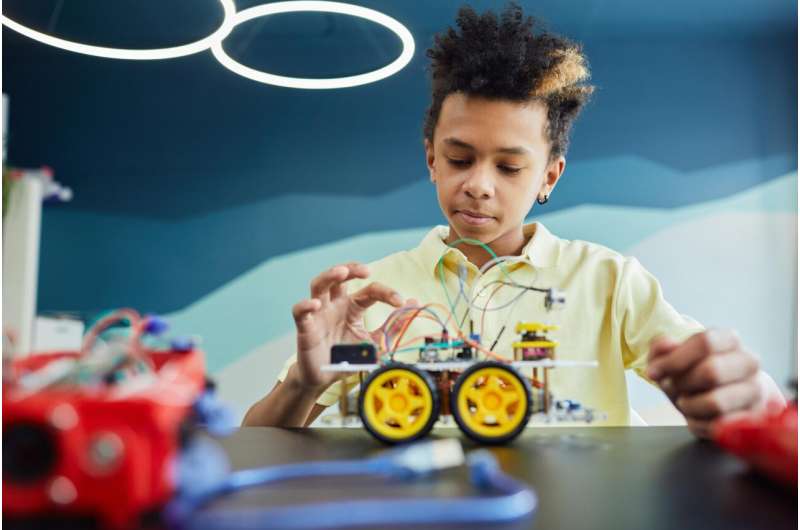As generative artificial intelligence rapidly evolves, K-12 educators face pressing challenges in integrating this technology into their classrooms. To assist in navigating these complexities, the Massachusetts Institute of Technology (MIT) has published a new guidebook titled “A Guide to AI in Schools: Perspectives for the Perplexed.” Released in November 2025, this resource aims to provide insights and support for teachers, school leaders, and policymakers.
Justin Reich, an associate professor in MIT’s Comparative Media Studies/Writing program and one of the guidebook’s authors, highlighted the need for a resource that encourages thoughtful discussion about AI in educational settings. “Throughout my career, I’ve aimed to translate research findings for educators,” Reich stated. “When new challenges arise, I try to step in and be helpful.”
The guidebook was developed with contributions from an expert advisory panel and over 100 students and teachers across the United States, who shared their experiences with generative AI tools. Reich emphasized the importance of humility in this evolving landscape: “We’re advocating for an ethos of humility as we examine AI in schools. Some uses may prove effective, while others may not, and we won’t know which is which for some time.”
Addressing Challenges in AI Integration
The guidebook serves as a platform for K-12 educators and stakeholders to gather and share information regarding AI’s impact on education. The arrival of AI has prompted schools to address various challenges, including academic integrity and data privacy. Reich cautioned that the guidebook is not intended to provide definitive answers but rather to stimulate thought and dialogue.
“Writing a guidebook on generative AI in schools in 2025 is akin to writing one on aviation in 1905,” the authors noted. “No one can claim to know how best to manage AI in schools at this point.” The complexities of integrating AI have also led to difficulties in assessing student learning loss in this new context.
Reich posed a critical question: “How does bypassing productive thinking with AI manifest in practice?” He expressed concern that if teachers provide content and context while students avoid engaging with the material, the educational process suffers.
Reich invites input from those directly affected by AI to collaboratively develop solutions for the challenges it presents. “It’s like observing a conversation in the teacher’s lounge and inviting students, parents, and others to participate,” he explained, underscoring the need for diverse perspectives in shaping educational strategies involving AI.
Expanding Resources for Educators
In addition to the guidebook, the MIT Teaching Systems Lab has launched “The Homework Machine,” a seven-part series on the Teachlab podcast that explores the transformative effects of AI on K-12 education. Produced in collaboration with journalist Jesse Dukes, each episode addresses key issues related to AI adoption, student engagement, post-COVID learning loss, and pedagogy.
“The academic publishing cycle often does not align with the urgent challenges posed by AI,” Reich noted. “The podcast allows us to share timely information and collaborate with others interested in advancing educational practices.” This format provides an opportunity to quickly disseminate and evaluate AI-related solutions, which can be instrumental in developing effective training resources.
Reich’s straightforward assessment of the current state of AI in education reflects a broader concern. “We’re fumbling around in the dark,” he said, recalling past failures to integrate technology effectively in classrooms. He cautioned against rushing to conclusions regarding AI’s role in education, referencing historical missteps in technology adoption.
“AI bypassed normal procurement processes in education; it simply showed up on kids’ phones,” he observed, urging patience and humility as research continues to unfold.
While educators must accept the reality of AI’s presence, Reich emphasizes the importance of gathering input from teachers and students to create solutions that enhance learning outcomes. “Let’s race to answers that are right, not first,” he asserted.
As schools continue to grapple with the implications of AI, Reich believes that diverse sources of learning can aid in testing ideas and collecting evidence on effective strategies. “We need to understand if learning is genuinely improved with AI,” he concluded, highlighting the ongoing search for answers in this rapidly evolving educational landscape.
For more information, visit A Guide to AI in Schools: Perspectives for the Perplexed at tsl.mit.edu/ai-guidebook/.







